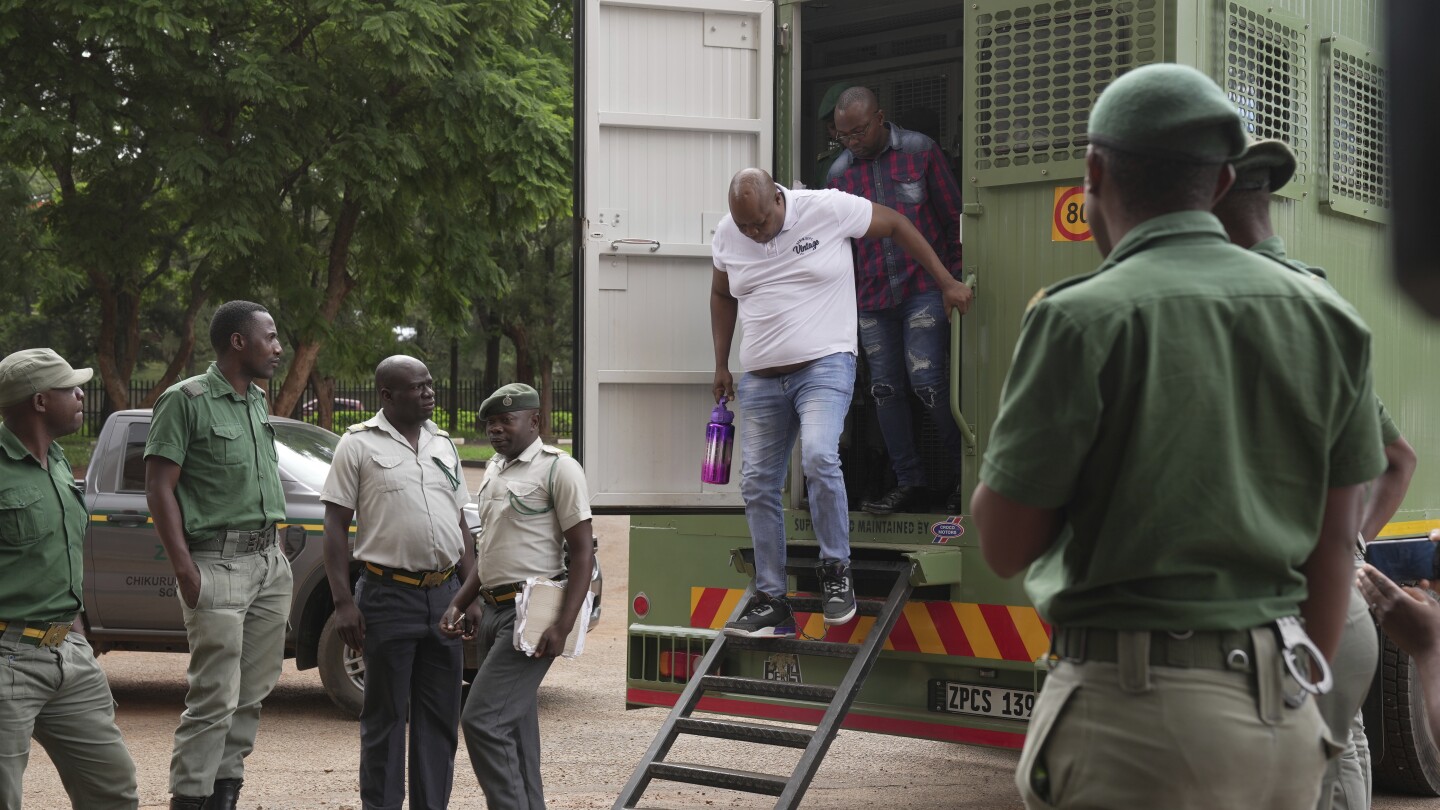HARARE, Zimbabwe (AP) — A Zimbabwean opposition figure who has spent close to 600 days in pretrial detention was convicted on Wednesday of inciting public violence, while some supporters sobbed at the treatment of a man seen by many as the face of resistance to the government’s alleged repression.
Job Sikhala, an outspoken official with the main opposition Citizens Coalition for Change party and a former member of parliament, was detained in June 2022 following the killing and dismembering of an activist from his party. He was accused of using social media to encourage opposition supporters to violently respond to the death of Moreblessing Ali.
Sikhala denied the charges, arguing that he was simply acting as the family’s lawyer in their quest to find Ali, whose body parts were later discovered in a well.
However, magistrate Tafadzwa Miti said evidence showed that Sikhala and opposition lawmaker Godfrey Sithole were responsible for the violence that followed Ali’s death near the capital, Harare.
Both men face up to 10 years in prison or a fine.
Sikhala has been arrested more than 65 times in the past 20 years and walked free each time before Wednesday’s verdict, his lawyers said. Supporters say his case highlights repression of dissenting voices in the southern African country.
Tension filled the courthouse in Harare. Dozens of people who couldn’t fit into the tiny courtroom packed the corridors and shoved police.
Outside, police in anti-riot gear and wielding batons blocked a group of activists from entering the courtyard to protest Sikhala ‘s continued detention. Some wept after the verdict was passed.
Sikhala seemed unshaken.
“Let them do what they want. I don’t care, don’t worry,” he said, wearing leg irons while walking from the court’s holding cells.
One of Sikhala’s lawyers, Harrison Nkomo, said they have been instructed to appeal Wednesday’s verdict.
The court on Monday will hear mitigation, a routine process in which lawyers plead for leniency before sentencing.
Global and local human rights groups including Amnesty International have protested the treatment of Sikhala, saying his situation underlines continued repression of the opposition and other government critics such as university students and labor unionists.
Last year’s election in Zimbabwe, the second since the coup that ousted the late and long-serving Robert Mugabe, was marked by allegations of violence, arrests, disruption of opposition activities and disputed results.
Current President Emmerson Mnangagwa, a former Mugabe ally who took power after the army-backed coup with promises of democratic reform, denies allegations of clamping down on the opposition. He insists that his government has improved the political environment and human rights situation.
Douglas Coltart, one of Sikhala’s lawyers, accused the government of using the law and the courts to punish outspoken rivals.
”The human rights situation in this country is extremely worrying. And it appears to be deteriorating,” he said outside the court.

